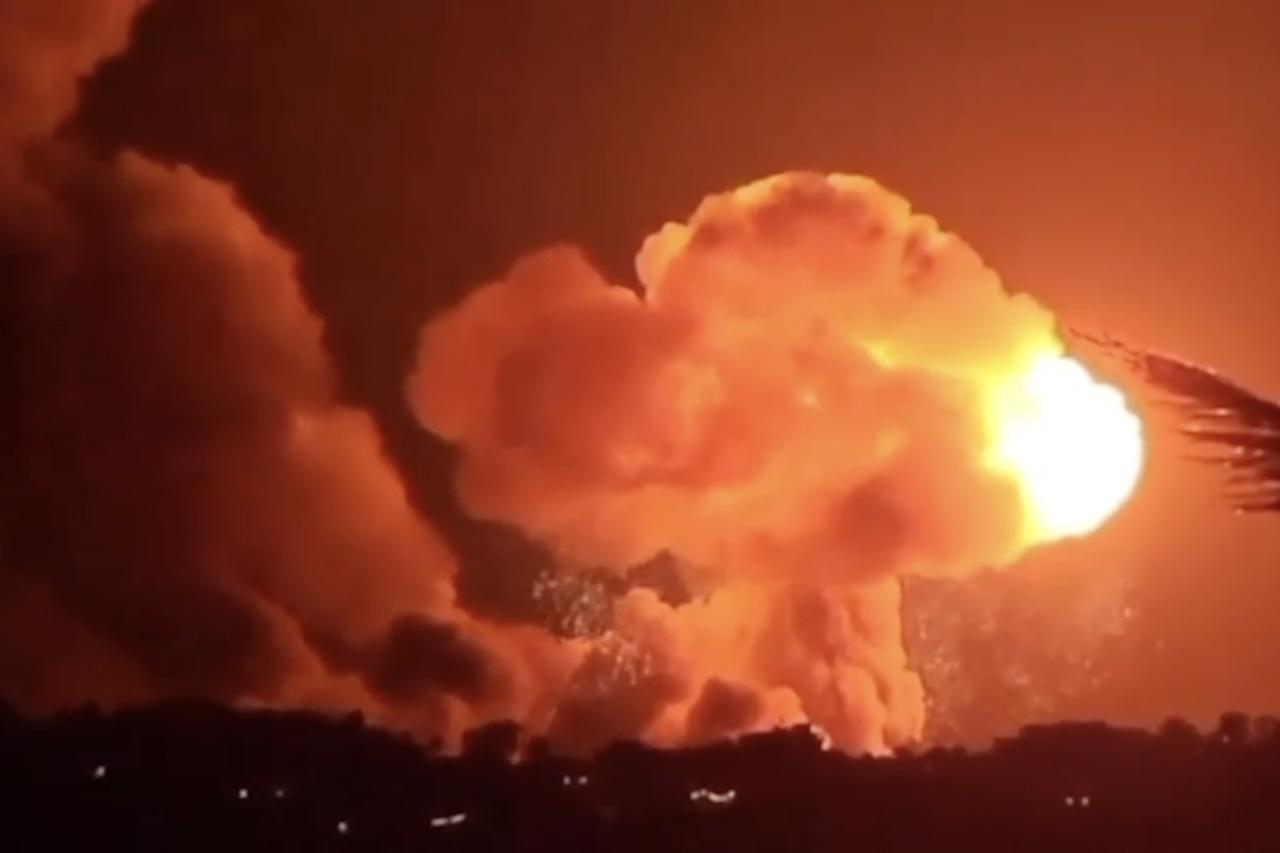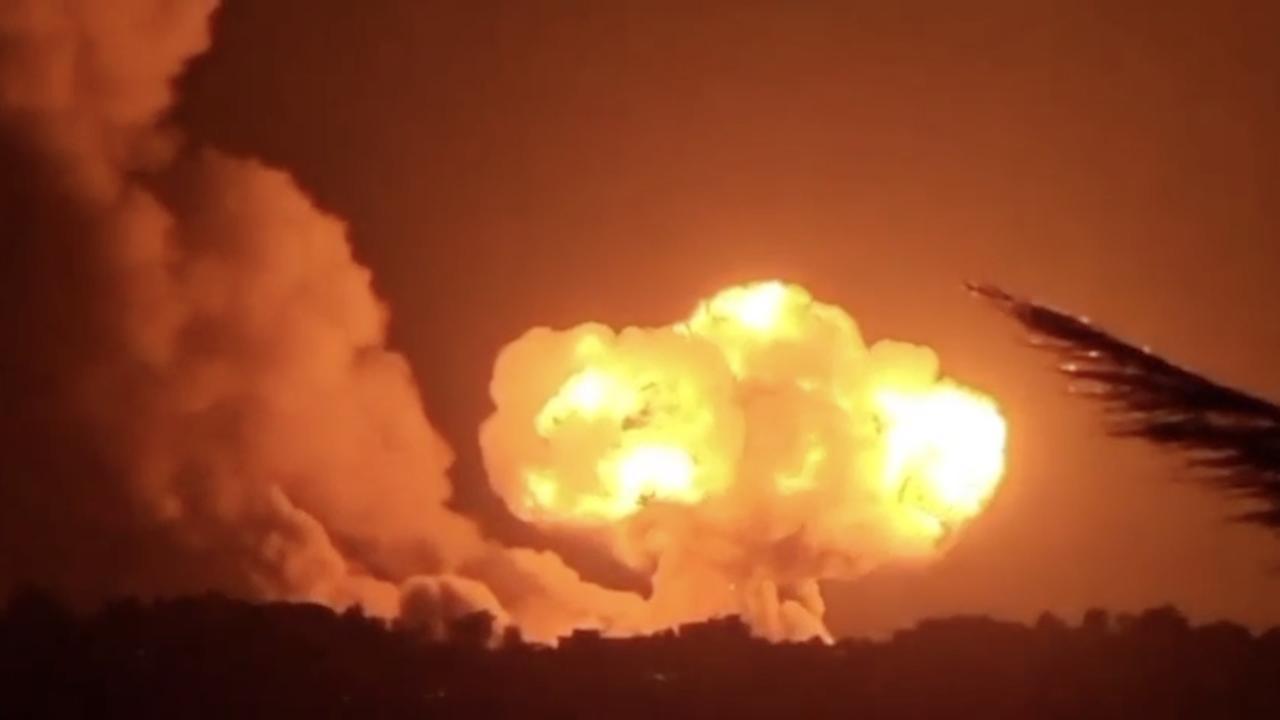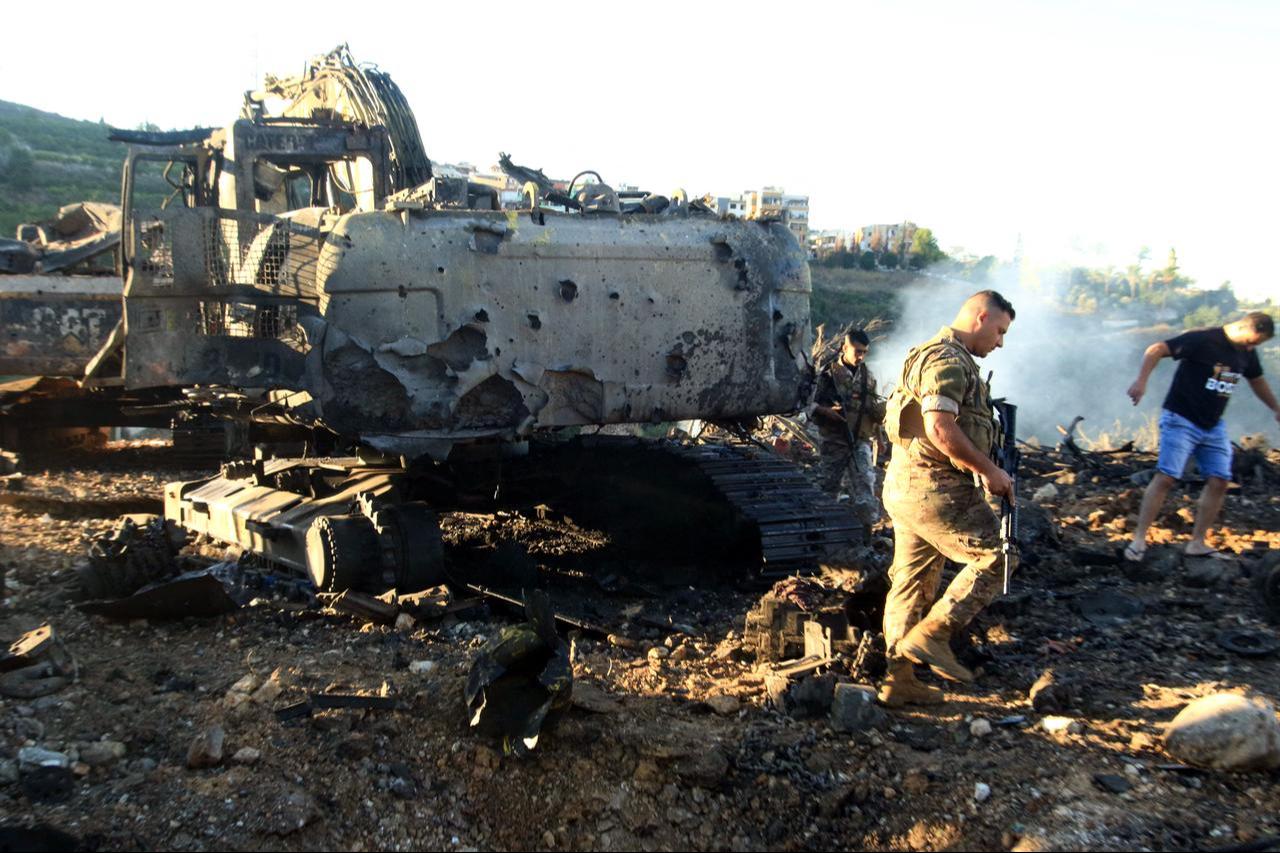
The Israeli military conducted more than 10 air strikes in southern and eastern Lebanon on late Thursday, according to Lebanon's national news agency NNA, violating the ceasefire agreement between Israel and Lebanon.
The Israeli air force targeted towns in southern Lebanon including Nabatieh, Sidon, Marjayoun, and Bint Jbeil, as well as Baalbek in the Bekaa region in eastern Lebanon, NNA reported.
Some of the intense strikes by Israeli warplanes targeted quarries and cement factories, according to reports.
Lebanese President Joseph Aoun condemned the strikes, saying they targeted "civilian facilities" and represented a breach of the ceasefire negotiated last year.
"The repeated Israeli aggression comes as part of a systematic policy aimed at destroying productive infrastructure, hindering economic recovery, and undermining national stability under false security pretexts," Aoun said.
An Israeli warplane conducted an air strike on an area between the towns of Roumine and Houmine in Nabatieh in southern Lebanon. An Israeli unmanned aerial vehicle (UAV) struck the Ali al-Taher area in the northern sections of al-Fawka.
Israeli warplanes conducted two air strikes on the town of Benaful in Sidon and one strike on an area between the towns of Sarafand and Baysariyeh.
An Israeli UAV struck a road between the towns of al-Sharqiyah and Kusriye es-Sayyad with a guided missile, creating a large crater in the road.
An Israeli UAV struck the town of Blida in Marjayoun while residents were occupied with olive harvesting. Another Israeli UAV conducted a strike on the town of Deir Intar in the Bint Jbeil area.
Israeli warplanes also conducted air strikes around the town of Shemstar in the Baalbek region.

The Israeli military stated it had "struck Hezbollah terrorist infrastructure in the Mazraat Sinai area in southern Lebanon."
The Israeli military said it had targeted Hezbollah and the Lebanese environmental organization Green Without Borders (GWB). GWB is an NGO under U.S. sanctions that Israel considers to have "operated under a civilian cover to conceal the presence of Hezbollah in the border area with Israel."
The Israeli military said it struck a quarry used by Hezbollah in devastated southern Lebanon to produce cement for reconstruction purposes. Facilities belonging to GWB were also targeted, which the military said were facilities used for reconstruction.
The military claimed it "raided underground terror facilities belonging to Hezbollah used for storing weapons in the Bekaa Valley and southern Lebanon."

Israel has repeatedly bombed Lebanon despite a November ceasefire, which followed more than a year of hostilities with the Iran-backed group Hezbollah that culminated in two months of open war.
Israel launched attacks against Lebanon in October 2023 and the assault escalated into a full-scale war in September 2024.
A ceasefire was reached in November 2024 following a year-long cycle of cross-border attacks between Hezbollah and Israel that began in October 2023. The conflict escalated into a full-scale Israeli offensive by September 2024, resulting in more than 4,000 deaths and around 17,000 injuries.
Under the terms of the truce, Israel was supposed to fully withdraw from southern Lebanon by January 2025. However, it has so far only partially pulled out troops and continues to maintain a military presence at five border outposts.
Israel currently occupies five Lebanese hilltops it captured during the recent war, while maintaining its presence in some regions it has held for decades.
The presence of these facilities constitutes a violation of the agreements between Israel and Lebanon, according to the Israeli military statement.